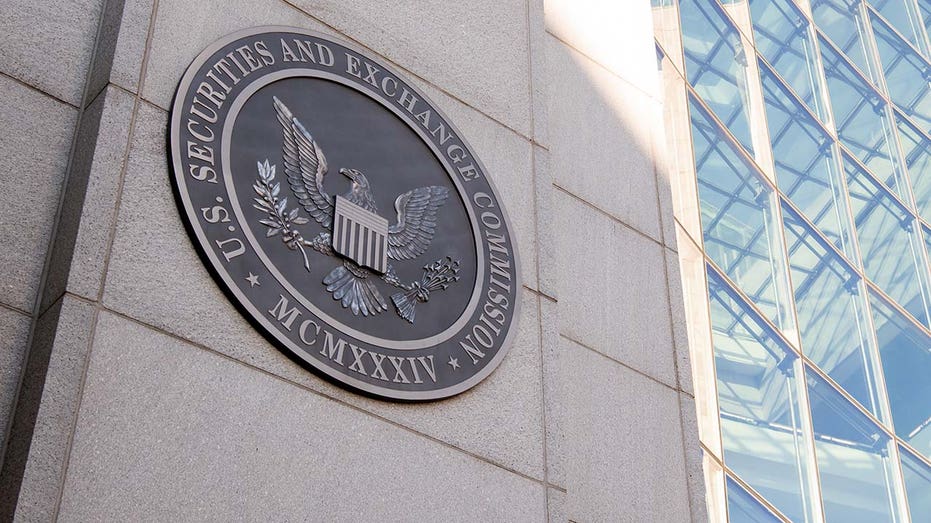Bussiness
Coinbase sues SEC, FDIC for information relating to crypto regulation

Coinbase chief policy officer Faryar Shirzad discusses the impact of the custodianship on ‘The Claman Countdown.’
Coinbase is launching a new legal offensive against the Securities and Exchange Commission and the Federal Deposit Insurance Corporation to procure documents relating to the agencies’ approaches to crypto regulation, FOX Business has learned.
According to the lawsuits filed Thursday in a Washington, D.C., district court, the U.S.’s largest crypto exchange is suing both regulators to gain access to internal records to shed light on what it describes as a “deliberate and concerted effort by the SEC, FDIC and other financial regulators” to pressure banks to deny crypto firms access to the federal banking system.
“For years, financial regulators – including the SEC, the FDIC, and the Federal Reserve Board – have used every tool at their disposal to try to cripple the digital-asset industry,” a Coinbase spokeswoman said in a statement to FOX Business. “We demand transparency from our federal government.”
The SEC declined comment. The FDIC did not immediately respond to a request for comment.
COINBASE CEO SAYS COMPANY HAS DONATED $25M TO VOTE ANTI-CRYPTO POLITICIANS OUT OF CONGRESS
A representation of the cryptocurrency is seen in front of Coinbase logo in this illustration taken, March 4, 2022. (Reuters/Dado Ruvic/Illustration/File Photo / Reuters Photos)
The move comes following Coinbase’s attempts to retrieve information through the Freedom of Information Act regarding three SEC investigations into crypto firms and entrepreneurs between 2018 and 2024, including its recently closed probe into the Ethereum blockchain network. The exchange is hoping the requested information will give it a better understanding of the SEC’s evolving views on digital assets over the years.
Coinbase also requested details of so-called “pause letters” sent by the FDIC between March 2022 and May 2023 to a handful of banks asking them to pause any crypto-related activity until it could provide further guidance on the risks associated with it.
The pause letters were revealed following an October report by the FDIC’s Office of the Inspector General detailing the agency’s strategies relating to risks associated with cryptocurrencies.
Coinbase says it was denied access to the requested information by both the SEC and the FDIC, despite being legally entitled to it under the Freedom of Information Act, which allows the public to request access to non-public records from federal agencies.

The headquarters of the US Securities and Exchange Commission (SEC) is seen in Washington, D.C., on Jan. 28, 2021. (SAUL LOEB/AFP via Getty Images / Getty Images)
This is the second time this month that the SEC has been sued for failing to comply with FOIA requests. On June 6, the American Securities Association sued the agency to obtain documents relating to its investigations into record-keeping practices at dozens of Wall Street firms including Morgan Stanley, JPMorgan and Goldman Sachs.
In that case, the ASA was denied access on the basis that it may jeopardize similar investigations and enforcement actions into other firms.
According to Coinbase’s lawsuits, the SEC and FDIC are using similar grounds for denying Coinbase the information it’s seeking, including whether top leadership at the agencies are using coordinated pressure tactics to “choke off” the $2 trillion digital assets industry from the lifeblood of the federal banking system.
CRYPTO INDUSTRY CHEERS BOWMAN LOSS, CURTIS VICTORY IN KEY ELECTION PRIMARIES
Coinbase references the so-called “Operation Chokepoint 2.0,” a colloquial term used by crypto industry participants to refer to what they see as a concerted effort by financial regulators to make it hard or, in some cases, to outright deny crypto firms access to banking services they need to exist in the U.S. economy. The “2.0” part is in homage to a 2013 enforcement initiative dubbed “Operation Chokepoint” in which federal regulators in the Obama administration denied banking services to so-called “high risk” businesses like payday lenders, which charge high interest short-term loans for consumers.
GET FOX BUSINESS ON THE GO BY CLICKING HERE
Other crypto participants have alleged that financial institutions have restricted or terminated their access to services for associating with digital assets.
On Wednesday, the founder of the cryptocurrency exchange Shapeshift, Erik Voorhees, took to X to complain that the fintech firm Revolut had shut down his account for “interacting with crypto.”
Wyoming-based crypto bank Custodia is currently appealing a judge’s decision to allow the Federal Reserve discretion to deny it access to a so-called master account which would give the state-chartered bank access to the central bank’s liquidity facilities and payment services.
In the meantime, Coinbase hopes its lawsuits will help provide a clearer picture of the SEC’s thinking behind its own enforcement action against the exchange, which is currently being litigated in a New York federal court as the SEC claims Coinbase is violating securities laws by offering potential unregistered securities in the form of cryptocurrencies on its platform.
Coinbase says the SEC has refused to articulate a consistent view on the securities laws’ application to digital assets, which is ultimately hurting industry participants.
However, the company may be waiting a long time to get the information it’s seeking. According to a recent report from the Government Accountability Office, there is a massive backlog of FOIA requests due to an increase in the volume and depth of information being sought by companies and individuals in recent years. The report shows that in 2022, the government-wide request backlog surpassed 200,000 requests for the first time.








